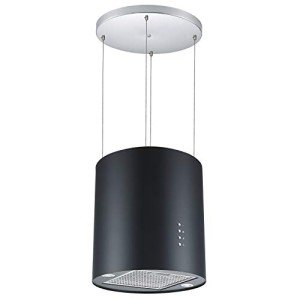10 Things You Learned In Kindergarden That Will Aid You In Obtaining I…
페이지 정보

본문
The Island Vent Hood: A Comprehensive Guide to Choosing and Installing the Perfect Kitchen Feature
In contemporary kitchen style, the island vent hood has actually become a necessary centerpiece, effortlessly integrating performance with aesthetic appeal. With the rise of open-concept home, where cooking areas are incorporated with dining and living areas, the importance of a well-designed ventilation system has become critical. This article explores what an island vent hood is, the numerous types available, essential features to think about, installation ideas, and FAQs surrounding this important kitchen element.
What is an Island Vent Hood?
An island vent hood is a kitchen ventilation system designed to be set up above an island cooktop or range. Unlike conventional wall-mounted hoods, island hoods are suspended from the ceiling, offering a clear view of the cooking area while effectively getting rid of smoke, steam, and odors from the kitchen. This makes island hoods an appealing option for open designs while ensuring a clean and comfortable cooking environment.

Types of Island Vent Hoods
When selecting an island range hood vent hood, it is vital to understand the numerous types available in the market. Here are the primary classifications:
| Type | Description |
|---|---|
| Ducted | Ventilation is directed outside, providing the very best air quality by expelling air and smells. |
| Ductless | Utilizes filters to clean the air and recirculate it back into the kitchen; easier to set up. |
| Convertible | Can operate in both ducted and ductless modes, providing flexibility in setup. |
| Under-Cabinet | Installed under cabinets; usually lower output, ideal for smaller kitchen layouts. |
Key Features to Consider
Selecting the right island Black island extractor Fan vent hood involves several vital elements. Here are the essential features to think about:
- Size: The hood ought to be at least as wide as the cooktop. Ideally, it must extend 6 inches on either side for optimum efficiency.
- CFM Rating: The Cubic Feet per Minute (CFM) ranking shows the hood's ventilation power. Higher CFM is required for heavy cooking, while lower CFM may suffice for lighter use.
- Noise Level: Measured in sones, a lower sone ranking suggests a quieter operation. A peaceful fan is particularly crucial in open-concept areas.
- Lighting: Many cooker island hoods come geared up with built-in lighting. LED lights are popular for their energy effectiveness and longevity.
- Design: Island vent hoods come in various styles, consisting of modern, standard, and industrial. Select a hood that matches the total kitchen visual.
Setup Tips
Setting up an island vent hood can be a complicated procedure. Here are some vital suggestions to assist in the installation:
- Check regional codes and guidelines to make sure compliance with installation height and electrical requirements.
- Identify the hood's height: The top of the hood must be 30 to 36 inches above the cooking surface, depending upon the producer's recommendations.
- Secure the mounting bracket: Ensure that the installing bracket is properly anchored to the ceiling to support the weight of the hood and motors.
- Ductwork considerations: If utilizing a ducted system, ensure proper duct size and layout for optimum airflow. Prevent sharp bends in ducting, which can hamper air movement.
- Electrical setup: Ensure that the electrical connections fulfill your hood's power requirements, and think about employing a certified electrician for complex setups.
Expense Considerations
The cost of an island vent hood can range considerably depending on features, materials, and brand name. Below is a breakdown of potential expenses connected with acquiring and installing these hoods:
| Cost Element | Estimated Range |
|---|---|
| Fundamental Models | ₤ 300 - ₤ 600 |
| Mid-range Models | ₤ 600 - ₤ 1,200 |
| High-End Models | ₤ 1,200 - ₤ 3,000+ |
| Installation Costs | ₤ 200 - ₤ 500 |
Often Asked Questions
1. How typically ought to I clean my island vent hood?Regular cleansing is encouraged, with deep cleaning a minimum of when a month, particularly if you cook often. 2. Can I set up an island vent

hood myself?While it is possible, expert
setup is suggested for safety and optimum performance, particularly with ductwork and electrical connections. 3. Are ductless island hoods effective?Ductless hoods can effectively filter
smoke and smells, but they may not be as powerful as ducted models. They require routine filter replacements and maintenance. 4. What kind of maintenance does an black island extractor fan - git.fuwafuwa.Moe, vent hood require?Regular cleansing of filters, lights, and hoods, together with inspecting for any wear and tear on motors or ductwork is crucial for keeping efficiency
. 5. What kind of filters need to I use?Most island vent hoods utilize aluminum or charcoal filters. Aluminum filters are reusable, while charcoal filters need to be changed
regularly. The island vent hood is an essential element of a modern kitchen, offering exhaustion of undesirable smells and making a striking style statement. Picking the best type, understanding essential
functions, and adhering to correct installation strategies will ensure optimal efficiency and longevity of this kitchen appliance. Whether you are an experienced chef or an occasional home cook, the ideal island vent hood can considerably enhance your cooking experience. By following the standards and factors to consider outlined in this short article, property owners can make educated decisions and delight in a cleaner and more satisfying cooking environment.
- 이전글7 Simple Tips To Totally Rocking Your Ovens For Sales 25.05.18
- 다음글A Time-Travelling Journey What People Said About Hob 20 Years Ago 25.05.18
댓글목록
등록된 댓글이 없습니다.